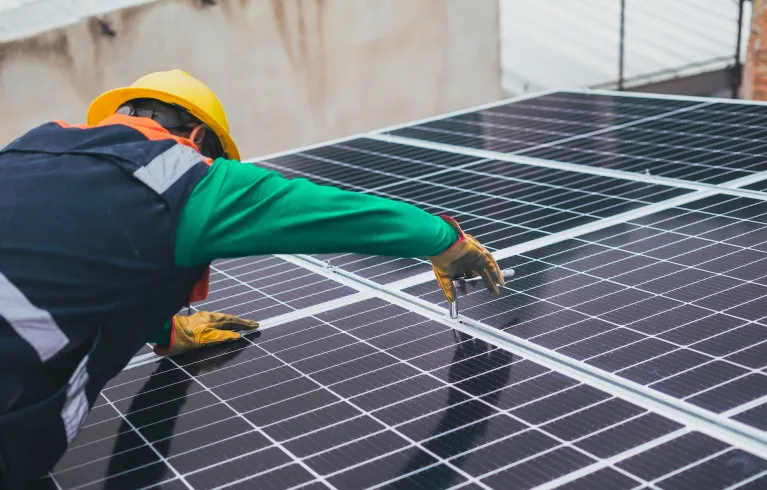
Key information
Publication type: Current investigation
Publication status: Adopted
Publication date:
Print this page
Contents
3 sections
Introduction
The Environment Committee will meet to examine the GLA’s approach to climate finance.
Key issues
- Climate change is increasing the frequency and intensity of extreme weather and associated impacts. In 2018, the Mayor declared a climate emergency for London and brought forward London’s net zero target from 2050 to 2030, which will require capital investment of at least £75 billion. Recent data shows that London is not currently on track to achieve the greenhouse gas emissions reductions required.
- Following reports by the London Sustainable Development Commission (LSDC) and Green Finance Institute (GFI) on how to raise the finance required, the GLA has launched four climate finance initiatives:
- The Green Finance Fund, which provides loan finance to accelerate investment into green projects. This was meant to be initially financed by a £500m green bond but is now initially financed from GLA’s cash resources. Its first Allocation and Impact Report, published in July 2024, showed that it had allocated £218.5m to eight eligible projects, covering solar energy, ULEZ and energy efficiency.
- The £100m EDGE fund for energy – of which the Mayor has contributed £50m.
- The Zero Carbon Accelerator- which provides project development support, but not finance
- The Mayor’s Energy Efficiency Fund (MEEF), which invested funding from the EU and private investors – the fund closed for new investments in May 2025 (although it will manage a portfolio of investments until 2038).
- In July 2024, the London Climate Resilience Review published its findings. This recommended that London should become “the world’s go-to financial marketplace for climate resilience services” The report highlighted that adaptation projects often face challenges getting approved because of the “higher uncertainty and information gaps that existed around them.” It recommended that the Mayor’s London Climate Finance Facility take forward approaches to mobilise greater levels of private finance, including launching a green bond. It also recommended creating an ‘adaptation accelerator’ to support organisations to develop climate action plans, and developing a new Climate Resilience Challenge fund to promote innovation.
- In July 2025, the Mayor announced plans for a new Climate Finance Taskforce to “help London attract billions in green investment to accelerate decarbonisation across the capital”. The taskforce will be chaired by Dr Rhian-Mari Thomas OBE, Chief Executive of the Green Finance Institute and plans to “bring together investors and stakeholders to develop strategies and solutions.” The GLA state it will meet monthly and “complete its work by early 2026”.
Key questions
- How urgent is it that the GLA makes progress on unlocking the finance necessary to make London climate resilient and a net zero city?
- What are the practical [non-regulatory] barriers to unlocking the finance needed to achieve the Mayor’s targets (to achieve net zero by 2030 and increased climate resilience), and how successful has the GLA been at overcoming these?
- How effective have the GLA’s financial mechanisms (e.g. the Green Finance Fund, EDGE fund and Zero Carbon Accelerator) been in mobilising new climate investment at the pace required? Have they delivered value for money and timely action?
- What else can the GLA do to increase climate finance for adaptation and climate resilience?
- What are the aims of the Mayor’s new Climate Finance Taskforce, and does it have the resources that it needs?
Back to table of contents